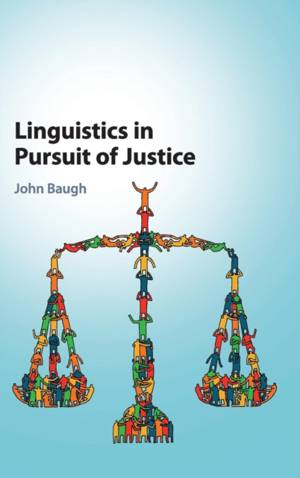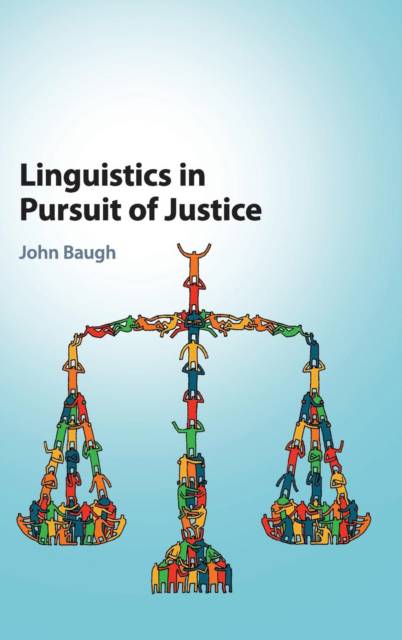
Bedankt voor het vertrouwen het afgelopen jaar! Om jou te bedanken bieden we GRATIS verzending (in België) aan op alles gedurende de hele maand januari.
- Afhalen na 1 uur in een winkel met voorraad
- In januari gratis thuislevering in België
- Ruim aanbod met 7 miljoen producten
Bedankt voor het vertrouwen het afgelopen jaar! Om jou te bedanken bieden we GRATIS verzending (in België) aan op alles gedurende de hele maand januari.
- Afhalen na 1 uur in een winkel met voorraad
- In januari gratis thuislevering in België
- Ruim aanbod met 7 miljoen producten
Zoeken
Omschrijving
As a black child growing up in inner-city neighborhoods in Philadelphia and Los Angeles, John Baugh witnessed racial discrimination at a young age and began to notice correlations between language and race. While attending college he worked at a Laundromat serving African Americans who were often subjected to mistreatment by the police. His observations piqued his curiosity about the ways that linguistic diversity might be related to the burgeoning Civil Rights movement for racial equality in America. Baugh pursued these ideas whilst traveling internationally only to discover alternative forms of linguistic discrimination in Europe, Africa, Asia, Australia, the Caribbean and South America. He coined the phrase 'linguistic profiling' based on experimental studies of housing discrimination, and expanded upon those findings to promote equity in education, employment, medicine and the law. This book is the product of the culmination of these studies, devoted to the advancement of equality and justice globally.
Specificaties
Betrokkenen
- Auteur(s):
- Uitgeverij:
Inhoud
- Aantal bladzijden:
- 232
- Taal:
- Engels
Eigenschappen
- Productcode (EAN):
- 9781107153455
- Verschijningsdatum:
- 25/01/2018
- Uitvoering:
- Hardcover
- Formaat:
- Genaaid
- Afmetingen:
- 174 mm x 235 mm
- Gewicht:
- 444 g

Alleen bij Standaard Boekhandel
+ 397 punten op je klantenkaart van Standaard Boekhandel
Beoordelingen
We publiceren alleen reviews die voldoen aan de voorwaarden voor reviews. Bekijk onze voorwaarden voor reviews.









